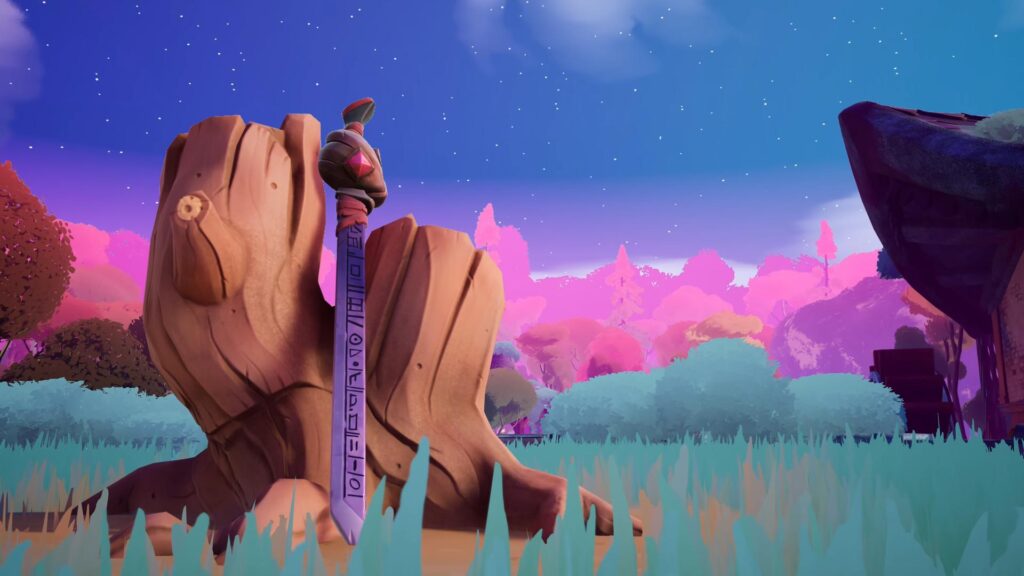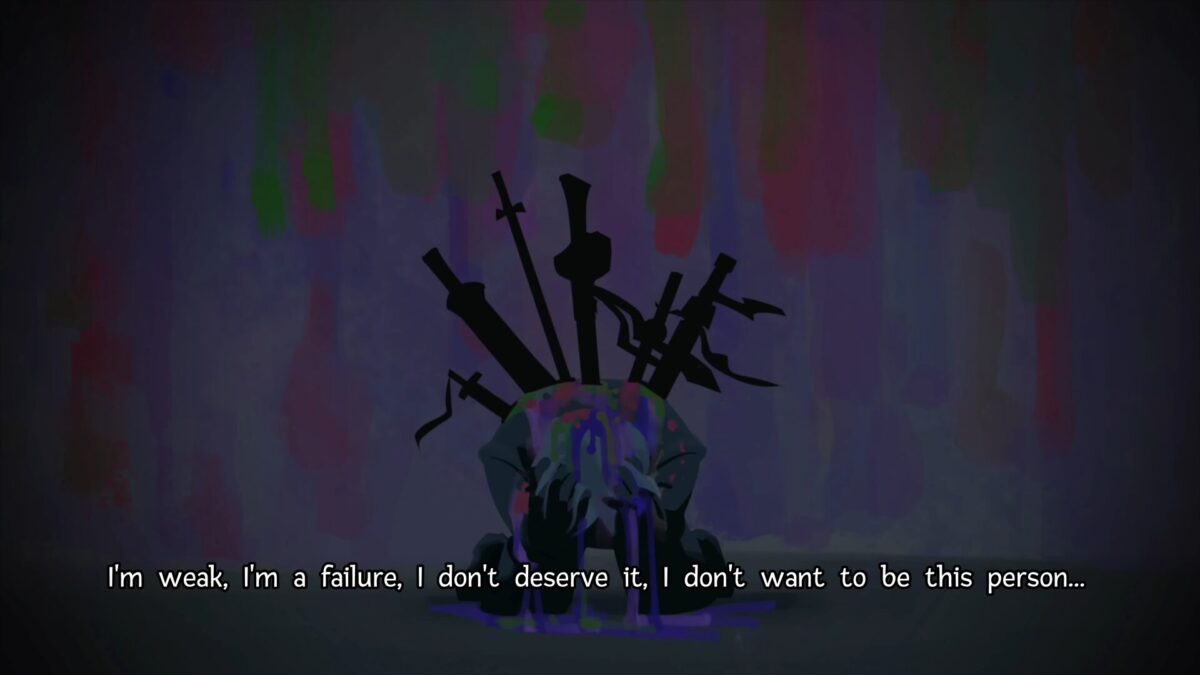Content warning: this article includes description of an emotional breakdown and bodily self harm. It also contains mild discussion of the ending of the game Wanderstop.
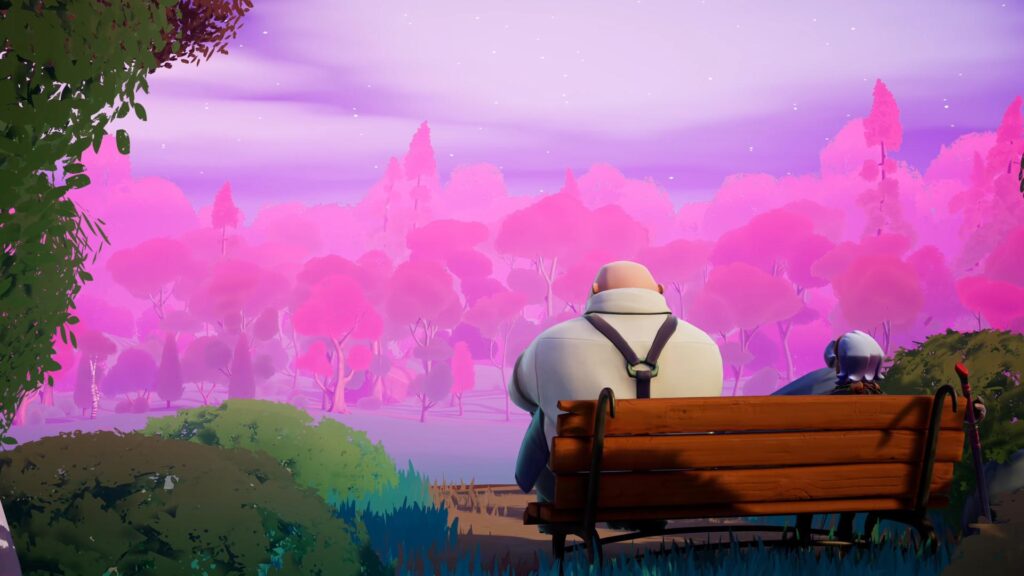
Boro sat with me and told me I could take as long as I liked, and I could leave when I was ready. As we gazed across the grassy plain a gentle, melancholy piano piece lilted through the valley.
A feeling bubbled up within me and, not for the first time over my 15 hours with the game, I began to weep. But this time, realising there are no easy routes to healing from pain I began to gasp and raggedly sob. I had conclusively been invited not to learn a big lesson, not to fix myself a specific way, but just to acknowledge that healing takes time. That there are no quick fixes. That there is just the pain, how you carry it, and how you continue forward whether in its presence or not. After the credits ended I was still crying. I just sat and let the soothing ambience of the start menu play as I reflected on the struggles of the past decade and a half.
Wanderstop is a game about a fighter called Alta who has reached the peak of her career and suddenly starts losing fights. She keeps losing, and reaches the point where she can’t even lift her sword – something she sees as inseparable from her identity. Not being able to lift it is profoundly and deeply traumatic. Stuck in a wood and unable to do the one thing that makes her feel like she has purpose she encounters Wanderstop – a tea shop run by a simple, quiet man called Boro. The game is about listening to characters, making them tea, tending to the grounds and healing from trauma.
It’s painful and beautiful and one of the only pieces of media that has ever got me to actually openly break out into grief stricken tears. I think it’s what I needed right now.
15 years ago I started my first proper desk job. I was fresh out of art school and had told myself I’d never do this. That I’d be an artist – creative, free, unbound by the daily grind. That to sit in front of a desk every day slaving away on work I didn’t care about would be a kind of death. At the same time I started the band Hearse Pileup, and as I started to fully conform to the frequently 9 to 9 working hours of a creative agency that experiences the dreaded “crunch” I wrote the lyrics for the song “Grindstone”:
“I got my nose to the grindstone every day
And I’m grinding so hard I grind myself away
I get blood on the floor wherever I go
And if I grind much more I’ll be grinding bone”
Little did I know at the time exactly how true the words I’d written would be. I was severely underpaid for my labour. I was left with little disposable income and forced to move back in with my family; with my wife and I sharing my childhood bedroom. We both worked for the same company. Everyone told us that we should find alternative work but we were repeatedly convinced that the was the only realistic option for us. Stuck in a vicious cycle of despair, scraping by and spending what little we had left over to stay sane in an environment that was a pressure cooker of stress.
The entire time I diligently worked on the band. I would finish work, come home, and work until the early hours of the morning on branding, our website, promotion, networking, contacting gig bookers and venues. In addition of course to rehearsing and writing music. Every moment I could spare I would be thinking about it and what I could do to escape my work life. I played shows, which made me feel alive. I stopped going to almost any other shows but the ones I was playing because I couldn’t afford to go out regularly. We recorded music, we got involved in the occupation of the 12 Bar on Denmark Street. We rarely got paid more for playing than we spent on getting to the show and a handful of drinks whilst we were there.
And it never felt like enough.
“I have devoted every day of my life to this, every single day for years and years! You have no idea of the sacrifices I’ve made, the pain I’ve endured, you can’t begin to imagine it! Do you understand that fighting is the one single thing I’ve spent my life on? I CAN’T give up!”
“I am sorry Miss, I was not meaning to touch on such a nerve.”
“It’s not a nerve!! It’s me! You’re talking about ME!”
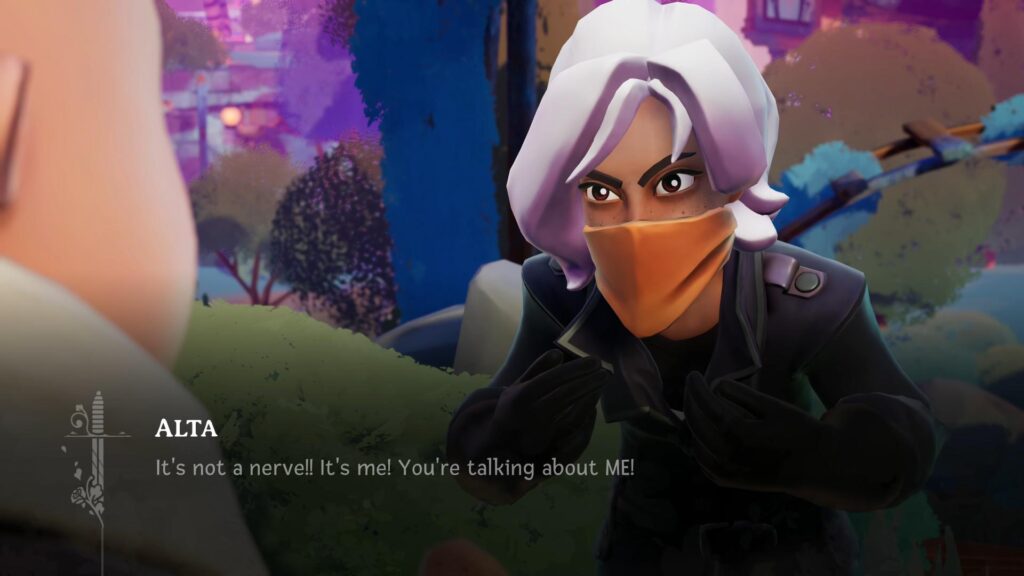
My work life didn’t improve much, and my frustration around lack of sufficient progression in my music career became an increasingly large weight. I can never know exactly how difficult it was for my wife to watch me go through this journey. But I do know that almost any time she wanted to have some personal time with me, going out on a walk, going shopping, going on a date, it started to feel like I had to choose between my relationship or my band. And I think I was responsible for that – I had shouldered too much burden and was allowing everything around me to atrophy in its wake. And worst of all I projected that outward and made her feel like she was making me choose. This is one of my deepest regrets. To this day, frustrations around my personal progression are something I have to keep a careful eye on. I don’t think it’s too much to expect to have a life in addition to a hobby. Or a career.
This culminated during the 2020 lock down in conjunction with some of the most heinous work hours I’ve ever experienced. At this point we were taking turns to lie on a sofa in our room in a silently tearful wreck whilst the other explained to our boss that the other was unable to work. We decided to go out for a peaceful walk around our neighborhood and an interaction with a random stranger caused an argument. It was my turn to be non-functional. I desperately persuaded my partner not to start a public argument as my constitution couldn’t take it right then. But what with her preexisting frustrations around people taking advantage of us that anger seethed under the surface and I couldn’t take it.
We got home.
We started arguing.
We started shouting.
I couldn’t take it any more. I’d taken too much pressure. I was too anxious, too burned out, too defeated. I couldn’t reason with the person I cared about most and I was hurting so deeply inside that I could scream… And I did.
I! JUST! NEED! TO! RELAX!
Each word screamed at the top of my voice.
I have a history of self harm, and every time I have done it it was to alleviate suppressed emotion. To relieve my emotional pain through physical pain. I swung my arm wildly. It collided with the side of my head. I did it again. I kept screaming.
I! JUST! NEED! TO! RELAX!
I kept going. I don’t remember exactly how my partner looked at this time but she must have been shocked. I fell to the floor. Words weren’t enough any more. I made a sound I never thought myself capable of, something I’ve not experienced before or since. A wordless, primal scream. I did it once, twice… and it began to dissolve into a wailing moan. I cried, my wife took hold of my hands. I stood up, still in tears, she held me. The side of my face had swollen up. She blamed herself – she said she’d done this to me.
But she hadn’t. She had been nothing but supportive and an extra source of strength for me the entire time. She wasn’t responsible for the conditions we’d been living under. Neither of us deserved that blame. Sometimes your actions are just the natural consequence of extreme conditions and the people who created them. I developed a moderately serious looking black eye. I wore my long fringe across my face to hide it from my parents. Like a domestic abuse victim. I now realise I was a kind of abuse victim, we both were. But it didn’t come from my home life.
My sister had been in the house, upstairs – I can only imagine how it must have sounded. I can’t imagine it would have been easy to hear.
I handed in my notice very soon after. I wore sunglasses at the time to hide my face.
Within a month my voice disappeared completely. The NHS told me there was nothing physically wrong with my throat apart from some mild acid reflux. It gradually returned but I couldn’t sing. And when I did start to sing again with the band I was locked into the growl of a metal singer – unable to maintain a clean tone. Something I needed if we were to finish off the album. We lost our 4th drummer. I stopped playing guitar regularly. I started to stop making creative work in general. I was drowning and I couldn’t see a way back to the person I was. We moved out to our own flat, we started to be able to afford a life together. Our material conditions improved but my wellspring of inspiration had mostly vanished. All the plans for drawing, writing, creating music seemed to turn to ash. And the things I did manage to do over that time felt like climbing a sheer rock face – taking huge amounts of effort to even make the smallest amount of progress.
I was burned out.
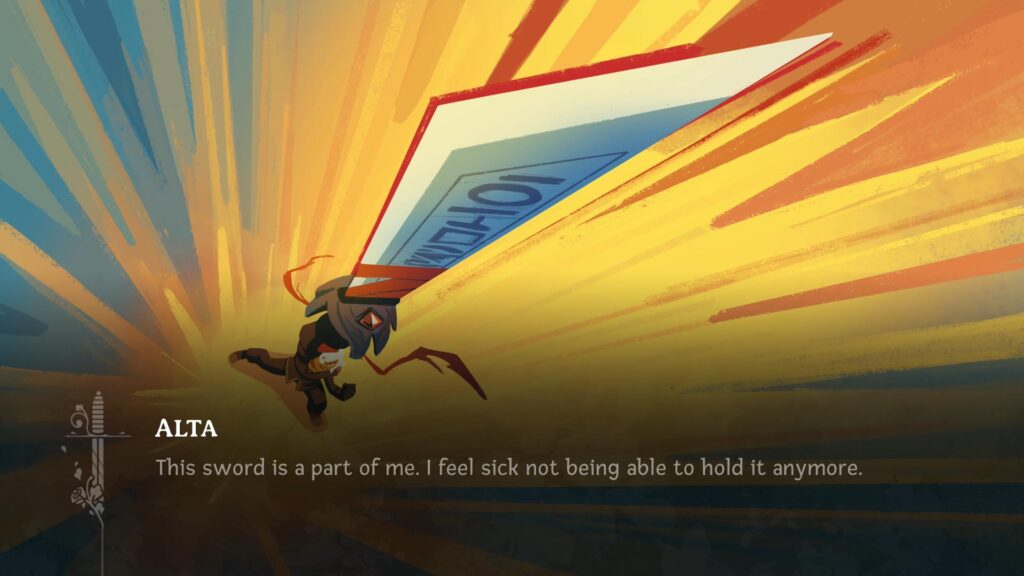
When Alta couldn’t lift her sword I immediately felt an intense pang of emotion. I knew that feeling. I began to tear up. I thought about my guitar. But all I could do was feel numb.
I feel that Wanderstop is a difficult game to talk about in the same way that Everything Everywhere All At Once is difficult to talk about. It’s divisive because it uses a type of double-frame narrative that relies somewhat on lived experience to be fully appreciated. Usually double-frame is used to describe a smaller story happening within a greater arc. In Everything Everywhere the greater narrative is about saving, well, everything. However the inner frame is where the emotional core of the movie lies. In Evelyn’s battle with the life she’s built and expectations of her father, and Joy’s desperate need for true acceptance of her and her sexuality from her mother. I am neither queer or the child of first generation immigrants, but have enough empathy and second hand experience from those close to me to pick up on the heartfelt earnestness of the way this inner, more meaningful narrative is told.
Similarly, Wanderstop is a game that on The surface presents itself as a cosy tea shop management simulator. But beneath that is an extended therapy session about burnout, emotional trauma and letting go. One that I think you need some understanding of the the real feelings of recovering from trauma to even be receptive to.
I don’t think the divisiveness is the fault of the game’s trailer, or its aesthetic design, but because “cozy” has become such an industry. There is a high demand for relaxing games you can unplug from the world to and just… be somewhere else for a while. And you could call this a kind of burnout too – many reviews of Wanderstop mentioned ‘feeling burned out’ by playing it. But the sort of burnout the game is addressing isn’t feeling exhausted after a tiring week – which is still valid. It’s the level of burnout you feel after pushing past that boundary. The kind of burnout where you put every ounce of your being into something only for it not only to not get better but actually get worse. When the thing you loved becomes a source of pain.
And acknowledging that is uncomfortable – Davey Wreden (the games director) knows this, I’m certain. The slow, ambling, meditative pace, the lack of direction, it all kind of forces you to sit with yourself. Wanderstop isn’t a cozy game – it’s a digital therapy session. And you have to be ready to deal with some serious interior emotions as the cost of entry (if, indeed, you have those emotions to process).
As an aside, another element the game deals with is the lack of agency in keeping things you might feel attached to. Accepting that, no matter what you do, sometimes people just disappear from your life and there is nothing you can do about it. A couple of years ago Hearse Pileup’s first drummer, the guy who named the band, passed away. We’d dropped out of contact. I wish I could have talked to him one more time but it didn’t happen.
Someone in my family I had put massive amounts of effort into helping through a difficult situation, similarly, removed me from their life.
Sometimes, no matter how you try, you can’t help someone and you can’t get the satisfying end to the story you see in movies. Things just end.
So, Wanderstop, to me, was an incredible experience that forced me to truly, clearly, look at myself. I don’t know if I’d even call it a ‘game’ in the traditional sense. And you may well not get out of it what I did, your mileage may vary. But there is something very beautiful and clearly observed at the centre of this game. I can’t understand exactly what Davey went through in the production but I’m certain he must have experienced his own fair share for burnout related trauma to end up where he is.
All I can say, really, is thank you to Davey for helping me through mine.
Since starting this article I’ve started picking up my guitar again.
